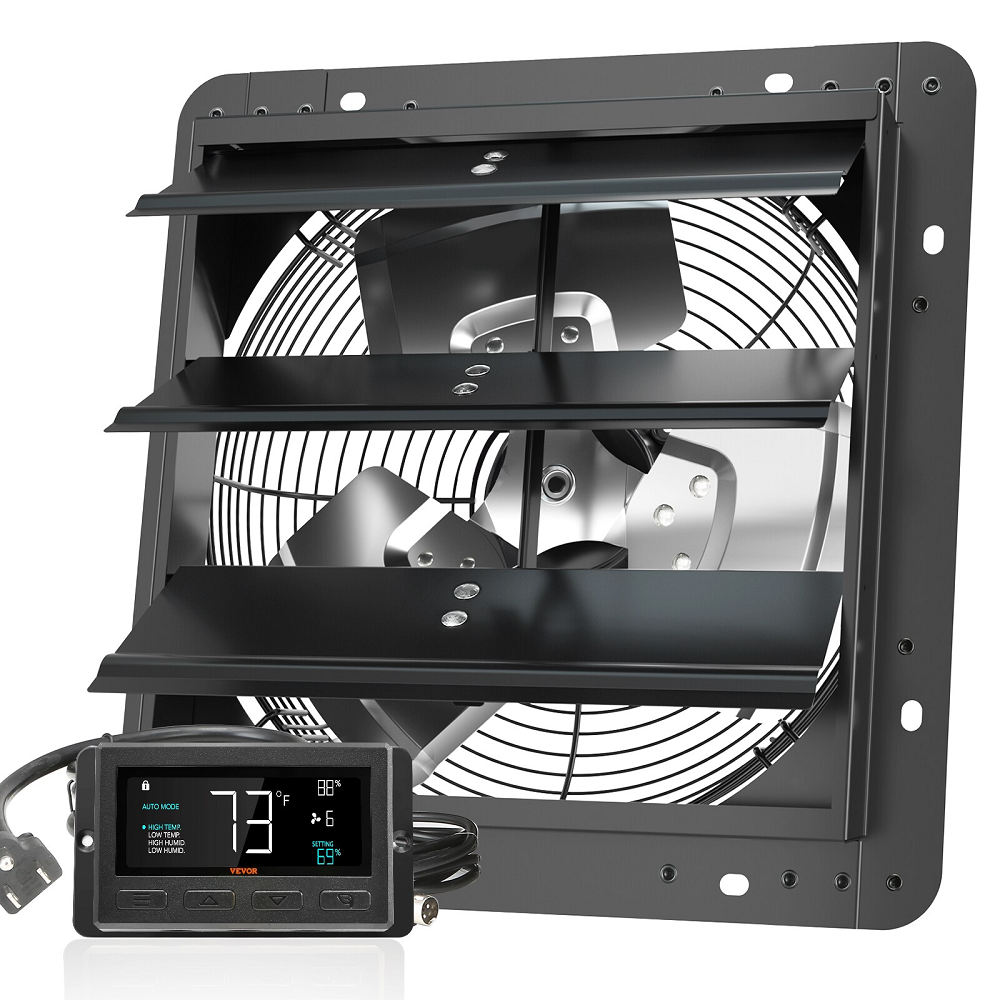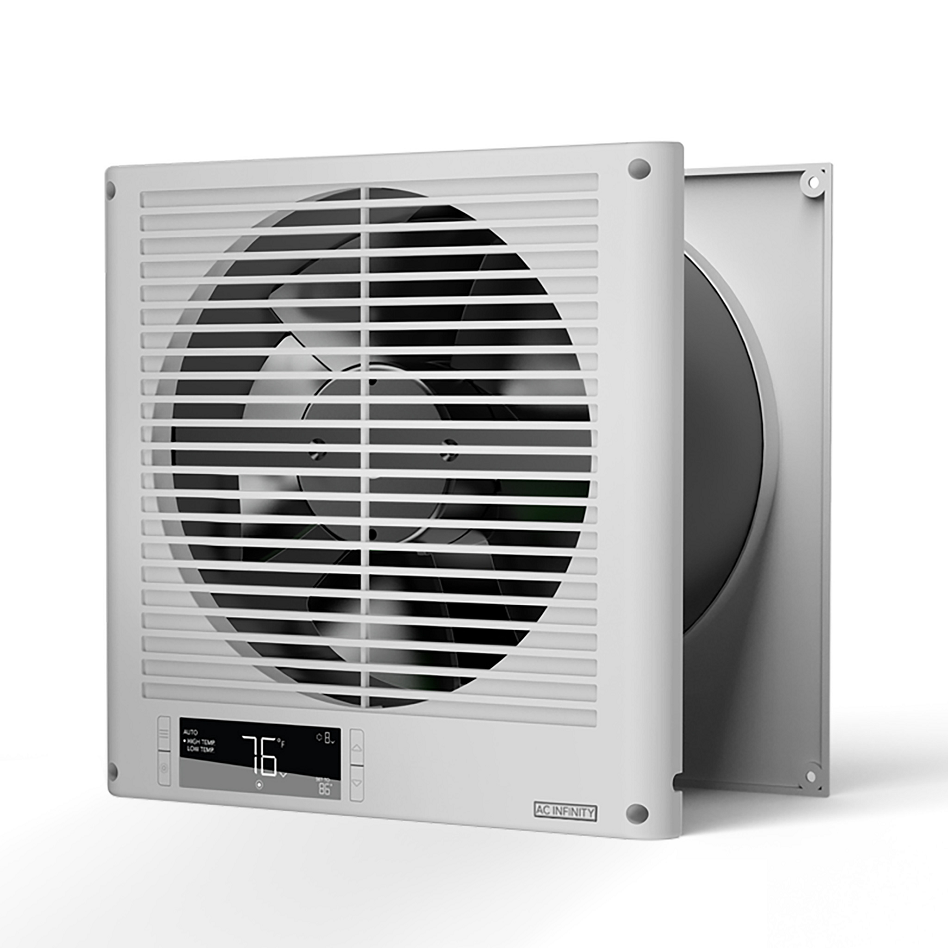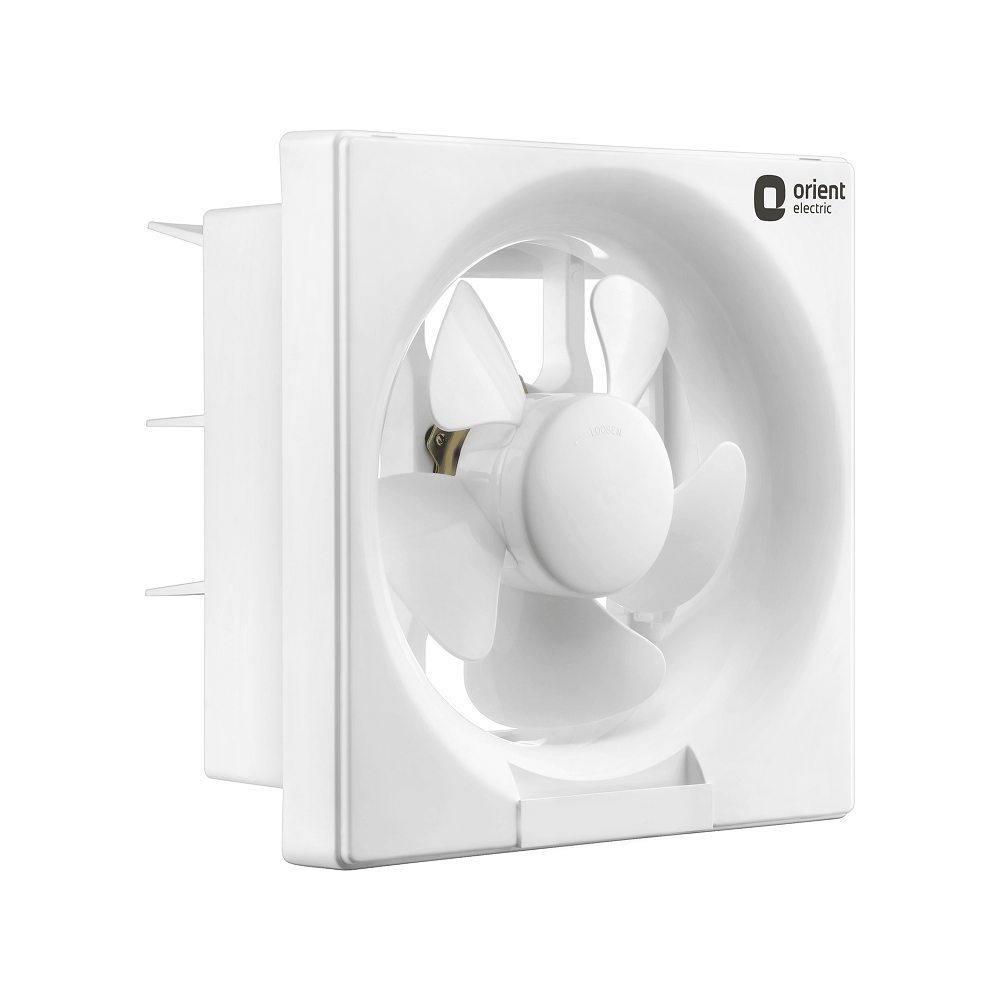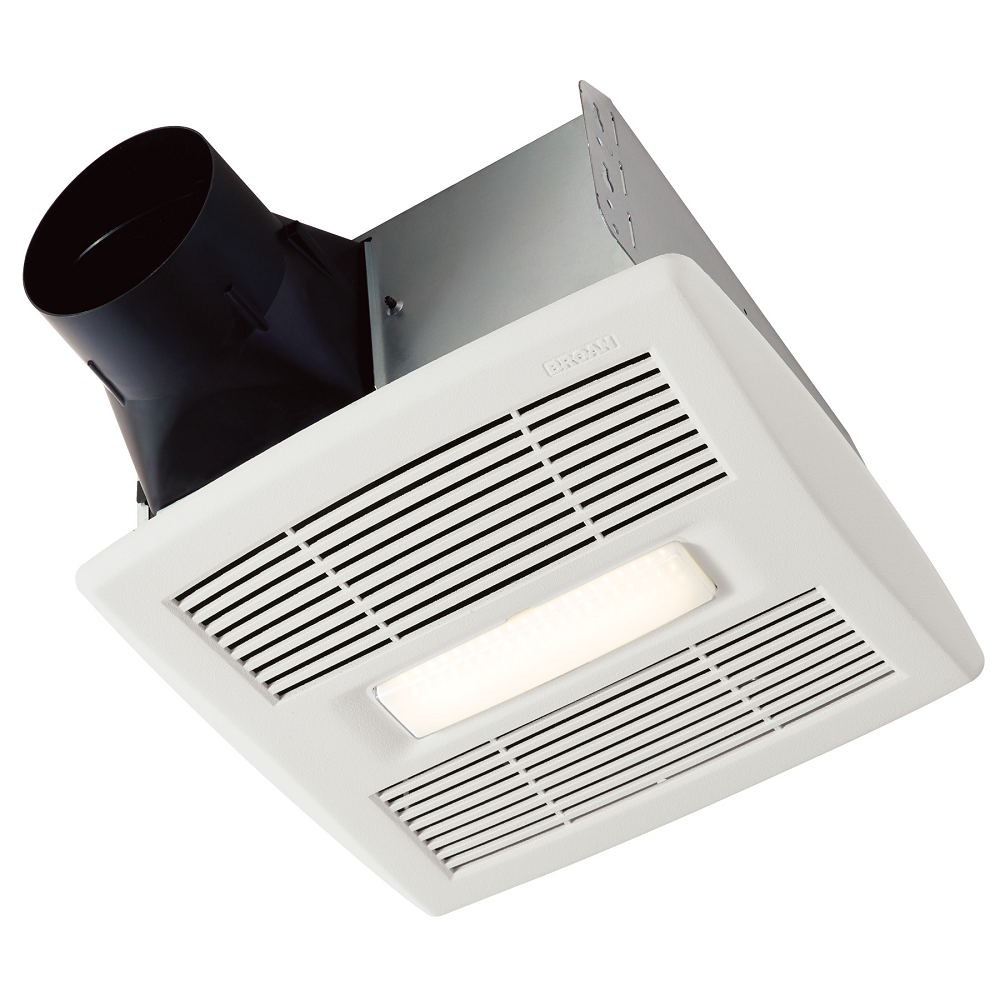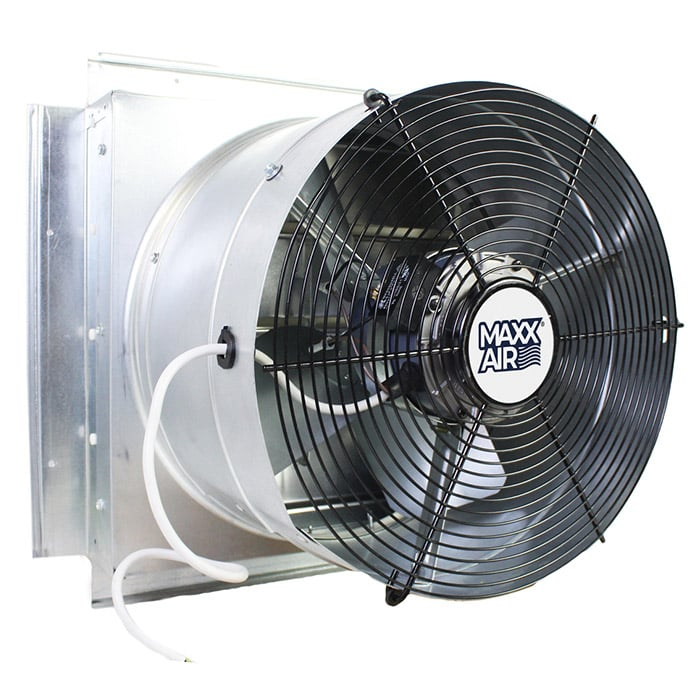Understanding Exhaust Fans
Exhaust fans are essential appliances found in many homes and workplaces. They help maintain air quality and comfort by removing stale air, humidity, and odors. Installed in areas like kitchens and bathrooms, these fans work efficiently to improve indoor environments. Let’s explore what makes exhaust fans vital for modern living spaces.
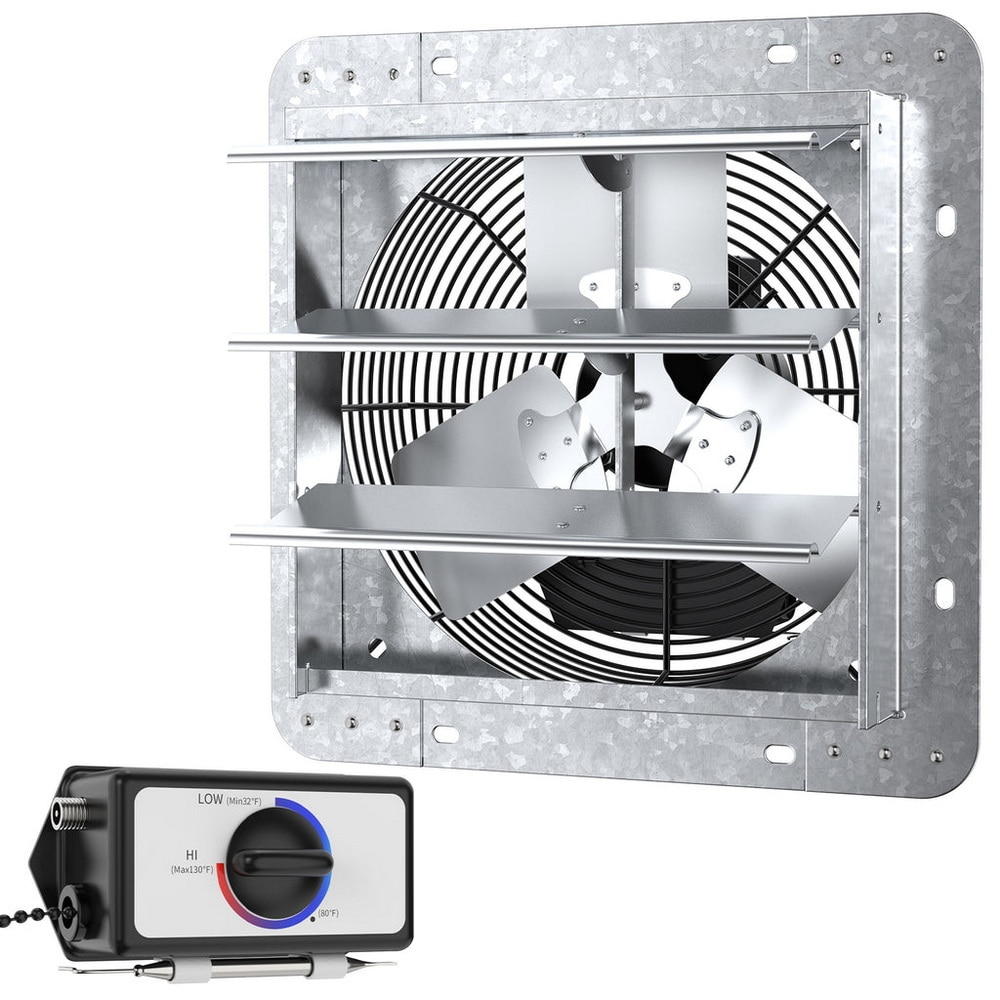
What Is an Exhaust Fan?
An exhaust fan is a mechanical device designed to move air out of a space. It pulls stale or contaminated air from an area and pushes it outside. This process creates a balance in air circulation. By replacing stale air with fresh air, exhaust fans improve indoor air quality.
These fans can be found in a variety of sizes and styles. Some are small and portable, while others are larger and designed for permanent installation. The designs also vary depending on where they will be used. Kitchen exhaust fans are built to handle grease and smoke, while bathroom vents focus on humidity and odors. Each type of exhaust fan is engineered for its specific environment.
How Do Exhaust Fans Work?
Exhaust fans operate on simple principles of airflow. When the fan is turned on, it generates suction. This suction pulls air from the room into the fan assembly and expels it outside. The fan blades spin rapidly, creating a low-pressure area. This low pressure allows air from the room to flow towards the fan.
The efficiency of an exhaust fan depends on several factors. The size of the fan, the airflow rate, and the design all play a role. A well-designed fan will circulate the air effectively. It can quickly remove unwanted air, creating a healthier environment.
Benefits of Using Exhaust Fans
Exhaust fans offer numerous benefits in various settings. They play a crucial role in maintaining healthy indoor air quality. Here are some of the main advantages of having exhaust fans in your space.
Improved Indoor Air Quality
One of the most significant advantages of exhaust fans is their ability to improve indoor air quality. Stale or contaminated air can lead to health problems. It can cause issues like headaches, fatigue, or respiratory illnesses. By actively removing this air, exhaust fans help maintain a healthier environment.
In kitchens, exhaust fans remove smoke, grease, and cooking odors. This helps prevent the buildup of harmful particles and keeps the air clean. In bathrooms, fans eliminate excess humidity, which can prevent mold growth. Good air quality has a direct impact on comfort and well-being.
Moisture Control
Another vital benefit is moisture control. High humidity levels can cause various issues in your home. It can lead to mold, mildew, and structural damage. Bathrooms and kitchens are particularly prone to moisture buildup. Exhaust fans are essential for controlling humidity in these areas.
When you shower or cook, humidity levels rise quickly. An exhaust fan helps to remove this excess moisture. By venting it outside, the fan helps keep your spaces dry. This preventive approach can save you money in repairs caused by moisture damage. It can also protect your health by reducing mold growth.
Choosing the Right Exhaust Fan
Selecting the right exhaust fan is crucial for maximizing its benefits. There are various factors to consider when making your choice. Understanding these factors will ensure that your fan meets your specific needs.
Size Matters
Size is one of the most important considerations when choosing an exhaust fan. The size of the fan should match the size of the room or space. An undersized fan will struggle to ventilate effectively. On the other hand, an oversized fan may lead to excessive airflow. This can create drafts and discomfort.
To determine the right size, you need to calculate the room’s volume. Measure the length, width, and height of the room. Then, multiply these dimensions to get the total cubic feet. Most manufacturers provide guidelines for the airflow required based on room size. Following these guidelines will help you choose the right fan for your space.
Noise Level
Noise level is another important aspect to consider. Some exhaust fans operate quite loudly, which can be disruptive. While a certain level of noise is unavoidable, many modern fans are designed for quiet operation. Look for fans labeled as “quiet” or “low noise” to ensure a more comfortable environment.
Consider the purpose of the room when selecting a fan. For example, in a bathroom, you may want a quieter fan to maintain a relaxing atmosphere. In contrast, in a kitchen, a slightly louder fan may be acceptable due to the need for strong ventilation.
Installation of Exhaust Fans
Proper installation of exhaust fans is vital for achieving optimal performance. This task can often be completed as a DIY project, but hiring a professional is sometimes recommended. Discussing both options helps you decide which is best for your situation.
DIY Installation Tips
If you choose to install the fan yourself, there are some tips to follow. First, read the manufacturer’s instructions thoroughly. Follow their guidelines for wiring, ventilation routes, and mounting positions. Ensuring you adhere to these instructions will lead to a successful installation.
Before starting, gather all tools and materials. You’ll need basic tools like a screwdriver, drill, and wire connectors. If your fan requires ducting, ensure you have the right duct sizes. When cutting holes for installation, measure carefully to avoid mistakes. Safety glasses and a dust mask are also essential.
When to Hire a Professional
In some cases, hiring a professional for installation is the best choice. If you are not comfortable with electrical work, consider calling an electrician. They can ensure that everything is correctly wired and meets local building codes. Doing so eliminates the risk of electrical hazards.
Additionally, if the installation involves extensive ductwork or structural changes, professional help can streamline the process. They have the experience and tools necessary to complete the job effectively and safely. Choosing the right option for installation ensures your exhaust fan will work efficiently for years.
Maintenance of Exhaust Fans
Once you have installed your exhaust fan, regular maintenance is crucial. Keeping the fan clean and functional will extend its lifespan and efficiency. Here are some important maintenance tips to follow.
Cleaning Your Exhaust Fan
Over time, dust and grease can accumulate on the fan blades and housing. This buildup can reduce efficiency and airflow. Cleaning your exhaust fan regularly helps prevent this issue. Generally, you should clean your fan at least once every three months.
To clean the fan, first, disconnect the power. Remove the fan cover and gently clean it with a damp cloth. For grease buildup, you may need to use mild detergent. Clean the fan blades carefully, avoiding any damage. Allow all parts to dry before reassembling.
Check for Obstructions
Along with cleaning, periodically check for any obstructions in the ductwork. Blockages can occur due to debris or even small animals. Remove any visible obstructions to ensure proper airflow. If you notice any issues, such as unusual noises or decreased performance, investigate the cause.
Regular maintenance will keep your exhaust fan functioning at its best. This proactive approach prevents problems and ensures good indoor air quality.
Advanced Features of Modern Exhaust Fans
Recent advancements in exhaust fan technology have led to new features. Many modern exhaust fans include smart technology options. These upgrades enhance functionality and user experience.
Smart Exhaust Fans
Smart exhaust fans can be controlled remotely through apps on smartphones or tablets. This convenience allows you to operate the fan even when you are not at home. You can schedule operation times or monitor the fan’s performance. Some models even have built-in humidity sensors. These sensors automatically adjust the fan speed based on humidity levels, ensuring optimal performance.
Energy Efficiency
Another exciting feature of modern exhaust fans is energy efficiency. Many new models are designed to use less energy while delivering powerful performance. Look for fans with ENERGY STAR certification. These fans meet strict energy efficiency guidelines, helping you save on energy costs.
Exhaust Fans in Commercial Spaces
Exhaust fans are not limited to residential use. They play a significant role in many commercial environments. Businesses in food service, healthcare, and manufacturing greatly benefit from proper ventilation.
Ventilation in Restaurants
In restaurants, exhaust fans are crucial for maintaining air quality. They help remove smoke, steam, and grease from the cooking area. This process protects both the health of workers and the comfort of patrons. Commercial kitchen exhaust systems often include hoods and ducts to manage airflow effectively.
Proper ventilation also prevents grease buildup, which can pose fire hazards. Regular maintenance of these systems is essential to ensure safety and prevent malfunction. Investing in high-quality exhaust fans can significantly improve the working environment in any food service business.
Healthcare Applications
In healthcare settings, exhaust fans play an important role in infection control. Hospitals and clinics utilize exhaust fans to ensure that air contaminants are removed efficiently. This maintains a sterile environment for patients and medical staff. Specialized exhaust systems may be necessary for different medical areas, such as operating rooms and laboratories.
Proper ventilation in healthcare spaces is critical. It helps prevent the spread of airborne diseases and ensures the safety of patients. Hospitals often employ advanced exhaust fan systems to manage air quality effectively.
Final Thoughts on Exhaust Fans
In conclusion, exhaust fans are vital components in both residential and commercial settings. They improve indoor air quality, control moisture, and enhance comfort. By selecting the right fan, ensuring proper installation, and performing regular maintenance, you can reap the benefits for years to come.
As technology advances, exhaust fans continue to evolve. Smart features and energy-efficient models are increasingly accessible. Whether in a home or a commercial environment, investing in a quality exhaust fan is a smart decision. Your comfort and health depend on it.
So, make sure to choose wisely. With the right exhaust fan in place, you’ll enjoy cleaner air and a more comfortable living or working space.
